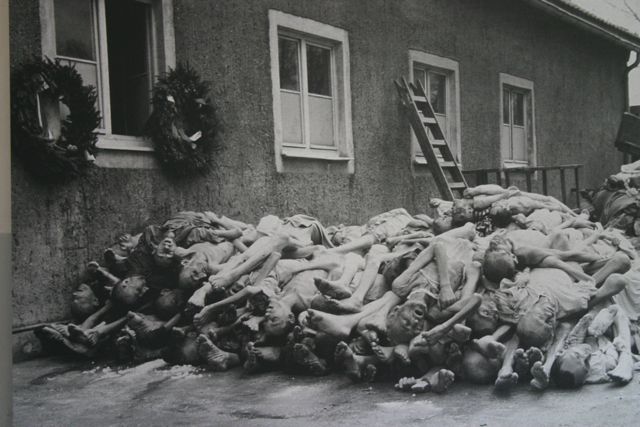The Nazi concentration camp at Buchenwald was liberated 70-years ago today.

Exactly 16-years later the trial of Adolf Eichmann, the head of the Nazi concentration camp system, began in Israel.
The history of all this is too well-known to belabor; whole libraries can be filled with books about the Second World War, and more are published every year. I want to mention just two of those books, because they belong on every person’s lifetime reading list; if you haven’t read both, your education is incomplete.
The first is Hannah Arendt’s Eichmann in Jerusalem: A Report on the Banality of Evil, a compilation of the pieces she wrote for The New Yorker while covering the trial. From the time of its publication until her death, Arendt was obliged to defend that brilliant subtitle: A Report on the Banality of Evil. Arendt’s point was this: Eichmann was not the bigger-than-life monster one expects of the author of so much evil. He was, to the contrary, a pissant nobody, the nervous weeny we all knew in high school who would never get a date till the day he married some domineering virago. And when he said he was ‘just following orders,’ he meant it and was baffled by the outrage directed at him.
Eichmann was not an affirmatively evil man; he was an amoral schlub who did as he was told. If he had been told to make certain every Jew in Germany received a cake on his birthday he would have done that, instead of killing them, with exactly the same efficiency and indifference.
The moral of the story is this: Never outsource moral agency — not to your boss, not to some preacher or the Bronze Age goatherders he consults; doing that is the commonplace, and the banality, of evil.
Until the early 1930s, and in spite of the ravages of the Treaty of Versailles, Germany was universally admired for its contributions to the arts, mathematics, philosophy, science. Just how, the world wondered, had a country so advanced behaved with such depravity? Eric Hoffer went upstream of that question: What is a mass movement itself? His answer, published as The True Believer: Thoughts on the Nature of Mass Movements, was celebrated, forgotten, went out of print, then revived after the appalling events of September 11, 2001. It is indispensable to understanding the global Fundamentalist Rebellion against modernity, what drives it, and what is at stake.
